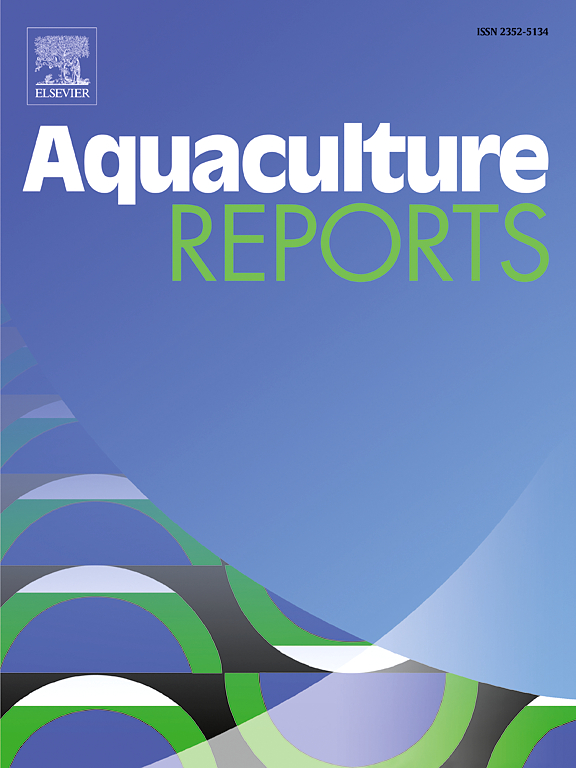温度升高对鱼类骨骼肌和肝脏的神经内分泌和分子反应的影响:综述
IF 3.2
2区 农林科学
Q1 FISHERIES
引用次数: 0
摘要
最近的预测表明,由于气候变化和人口增长,粮食安全可能面临威胁。全球变暖正在改变海洋温度,影响生产力和水生生态系统。本综述深入探讨了热应激对水产养殖的影响,重点是由下丘脑-垂体-肾上腺(HPI)轴控制的神经内分泌系统。该轴通过皮质醇和儿茶酚胺调节应激反应,影响能量代谢和应激适应。综述讨论了骨骼肌和肝脏的分子适应性,影响与生长和能量代谢有关的基因表达。另一方面,热应激会引起显著的分子反应,改变参与糖酵解和氧化磷酸化的基因表达,以及生长激素和胰岛素生长因子等激素途径,这些对新陈代谢调节和肌肉生长至关重要。总之,本综述深入探讨了鱼类对热应激反应的神经内分泌和分子机制,强调了骨骼肌和肝脏组织在介导生理适应方面的重要性。此外,它还分析了水生生物蛋白质合成、细胞信号通路、氧化应激和酶反应的影响,强调了了解这些分子适应性对制定有效缓解策略的重要性,以确保水产养殖系统在不断变化的条件下的可持续性。本文章由计算机程序翻译,如有差异,请以英文原文为准。
Impact of increasing temperatures on neuroendocrine and molecular responses of skeletal muscle and liver in fish: A comprehensive review
Recent projections suggest that food security may face threats due to climate change and population growth. Global warming is altering ocean temperatures, impacting productivity and aquatic ecosystems. This review delves into the impact of heat stress on fish aquaculture, focusing on the neuroendocrine system, controlled by the hypothalamic-pituitary-interrenal (HPI) axis. This axis regulates stress responses via cortisol and catecholamines, influencing energy metabolism and stress adaptation. The review discusses molecular adaptations in skeletal muscle and liver, affecting gene expression related to growth and energy metabolism. On the other hand, heat stress provokes notable molecular responses, altering the expression of genes involved in glycolysis and oxidative phosphorylation, and hormonal pathways like growth hormone and insulin growth factors, which are vital for metabolic regulation and muscle growth. In summary, this review provides insights into the neuroendocrine and molecular mechanisms underlying fish responses to thermal stress, emphasizing the importance of skeletal muscle and liver tissues in mediating physiological adaptations. Furthermore, it analyzes the implications for protein synthesis, cellular signaling pathways, oxidative stress, and enzymatic responses in aquatic organisms, highlighting the importance of understanding these molecular adaptations to develop effective mitigation strategies that ensure the sustainability of aquaculture systems amidst changing conditions.
求助全文
通过发布文献求助,成功后即可免费获取论文全文。
去求助
来源期刊

Aquaculture Reports
Agricultural and Biological Sciences-Animal Science and Zoology
CiteScore
5.90
自引率
8.10%
发文量
469
审稿时长
77 days
期刊介绍:
Aquaculture Reports will publish original research papers and reviews documenting outstanding science with a regional context and focus, answering the need for high quality information on novel species, systems and regions in emerging areas of aquaculture research and development, such as integrated multi-trophic aquaculture, urban aquaculture, ornamental, unfed aquaculture, offshore aquaculture and others. Papers having industry research as priority and encompassing product development research or current industry practice are encouraged.
 求助内容:
求助内容: 应助结果提醒方式:
应助结果提醒方式:


